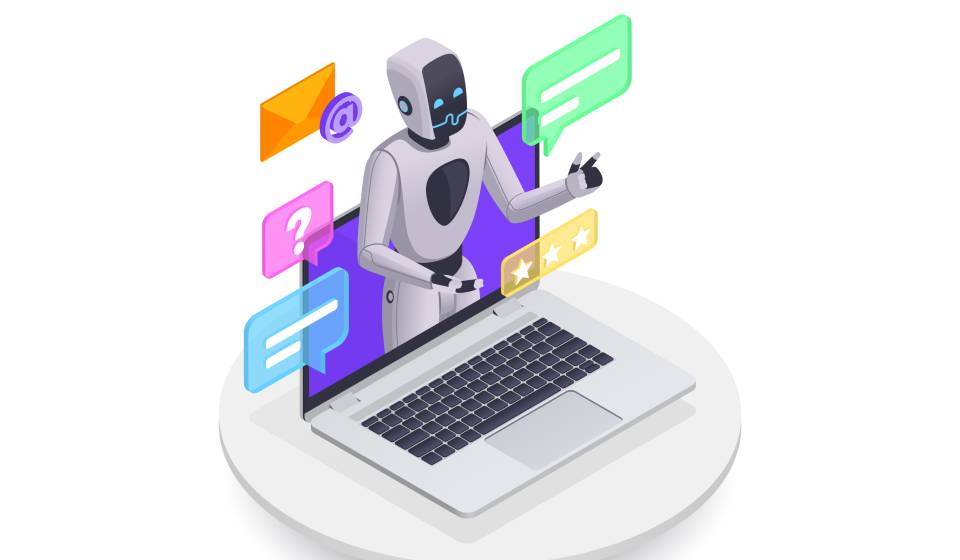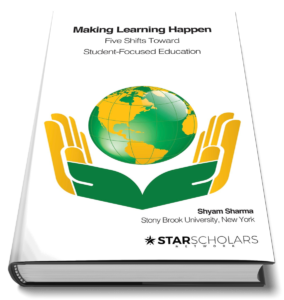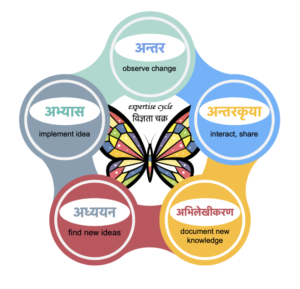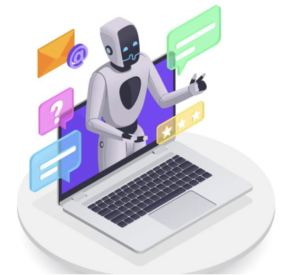“It has saved me 50 hours on a coding project,” whispered one of my students to me in class recently. He was using the artificial intelligence tool named ChatGPT for a web project. His classmates were writing feedback on his reading response for the day, testing a rubric they had collectively generated for how to effectively summarize and respond to an academic text.
The class also observed ChatGPT’s version of the rubric and agreed that there is some value in “giving it a look in the learning process.” But they had decided that their own brain muscles must be developed by grappling with the process of reading and summarizing, synthesizing and analyzing, and learning to take intellectual positions, often across an emotionally felt experience. Our brain muscles couldn’t be developed, the class concluded, by simply looking at content gathered by a bot from the internet, however good that was. When the class finished writing, they shared their often brutal assessment of the volunteer writer’s response to the reading. The class learned by practicing, not asking for an answer.
Beyond the classroom, however, the discourse about artificial intelligence tools “doing writing” has not yet become as nuanced as among my college students. “The college essay is dead,” declared Stephen Marche of the Atlantic recently. This argument is based on a serious but common misunderstanding of a means of education as an end. The essay embodies a complex process and experience that teach many useful skills. It is not a simple product.
But that misunderstanding is just the tip of an iceberg. The current discourse about artificial intelligence not only reflects a shrunken view of education. It also represents a constant romanticization of, or alarmism about, new technologies influencing education. And most saddening for educators like me, it shows a disregard toward students as dishonest by default.
Broaden the view of education
If we focus on writing as a process and vehicle for learning, it is fine to kill the essay as a mere product. It is great if bot-generated texts serve certain purposes. Past generations used templates for letters and memos, not to mention forms to fill. New generations will adapt to more content they didn’t write.
What bots should not replace is the need for us to grow and use our own minds and conscience, to judge when we can or should use a bot and how and why. Teachers must teach students how to use language based on contextual, nuanced, and sensitive understanding of the world. Students must learn to think for themselves, with and without using bots.
Continue reading




 At a gathering of department chairs and other academic leaders some time ago, my university’s faculty development center did a fascinating warm up activity. They gave all attendees green, yellow, and red stickers, asking them to attach one to each of the several statements glued to the wall: how well do you think ChatGPT can do this task? After we all went around to stick green stickers where we thought ChatGPT can do an excellent job, yellow for an okay job, and red for indicating it can’t do that kind of task, we had an open conversation.
At a gathering of department chairs and other academic leaders some time ago, my university’s faculty development center did a fascinating warm up activity. They gave all attendees green, yellow, and red stickers, asking them to attach one to each of the several statements glued to the wall: how well do you think ChatGPT can do this task? After we all went around to stick green stickers where we thought ChatGPT can do an excellent job, yellow for an okay job, and red for indicating it can’t do that kind of task, we had an open conversation.
 Cohen, a former lawyer of a former US president was recently caught submitting AI-generated (meaning, fake) legal cases to court. He was appealing to shorten a probation for lying to Congress earlier. But Cohen is not a rare case. Artificial intelligence tools are convincing millions of educated people in highly sensitive professions and across the world, and not just everyday people using them for mundane purposes. Doctors are embracing AI-generated assessments and solutions, and engineers even more.
Cohen, a former lawyer of a former US president was recently caught submitting AI-generated (meaning, fake) legal cases to court. He was appealing to shorten a probation for lying to Congress earlier. But Cohen is not a rare case. Artificial intelligence tools are convincing millions of educated people in highly sensitive professions and across the world, and not just everyday people using them for mundane purposes. Doctors are embracing AI-generated assessments and solutions, and engineers even more. It has saved me 50 hours on a coding project,” whispered one of my students to me in class recently. He was using the artificial intelligence tool named ChatGPT for a web project. His classmates were writing feedback on his reading response for the day, testing a rubric they had collectively generated for how to effectively summarize and respond to an academic text.
It has saved me 50 hours on a coding project,” whispered one of my students to me in class recently. He was using the artificial intelligence tool named ChatGPT for a web project. His classmates were writing feedback on his reading response for the day, testing a rubric they had collectively generated for how to effectively summarize and respond to an academic text.
 A lot more teacher training is taking place in Nepal today than, say, ten years ago. In schools and universities, training programs range from informal one-hour sessions run by teachers to formal multi-day ones organized by institutions. They also range from free and virtual gatherings to lavish retreats at fancy places. Unfortunately, this great development remains characterized mostly by lecture–with hands-on practice being an exception.
A lot more teacher training is taking place in Nepal today than, say, ten years ago. In schools and universities, training programs range from informal one-hour sessions run by teachers to formal multi-day ones organized by institutions. They also range from free and virtual gatherings to lavish retreats at fancy places. Unfortunately, this great development remains characterized mostly by lecture–with hands-on practice being an exception.

